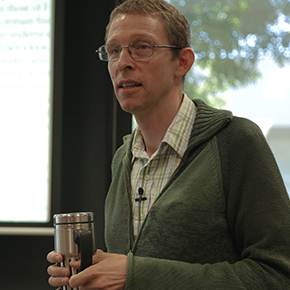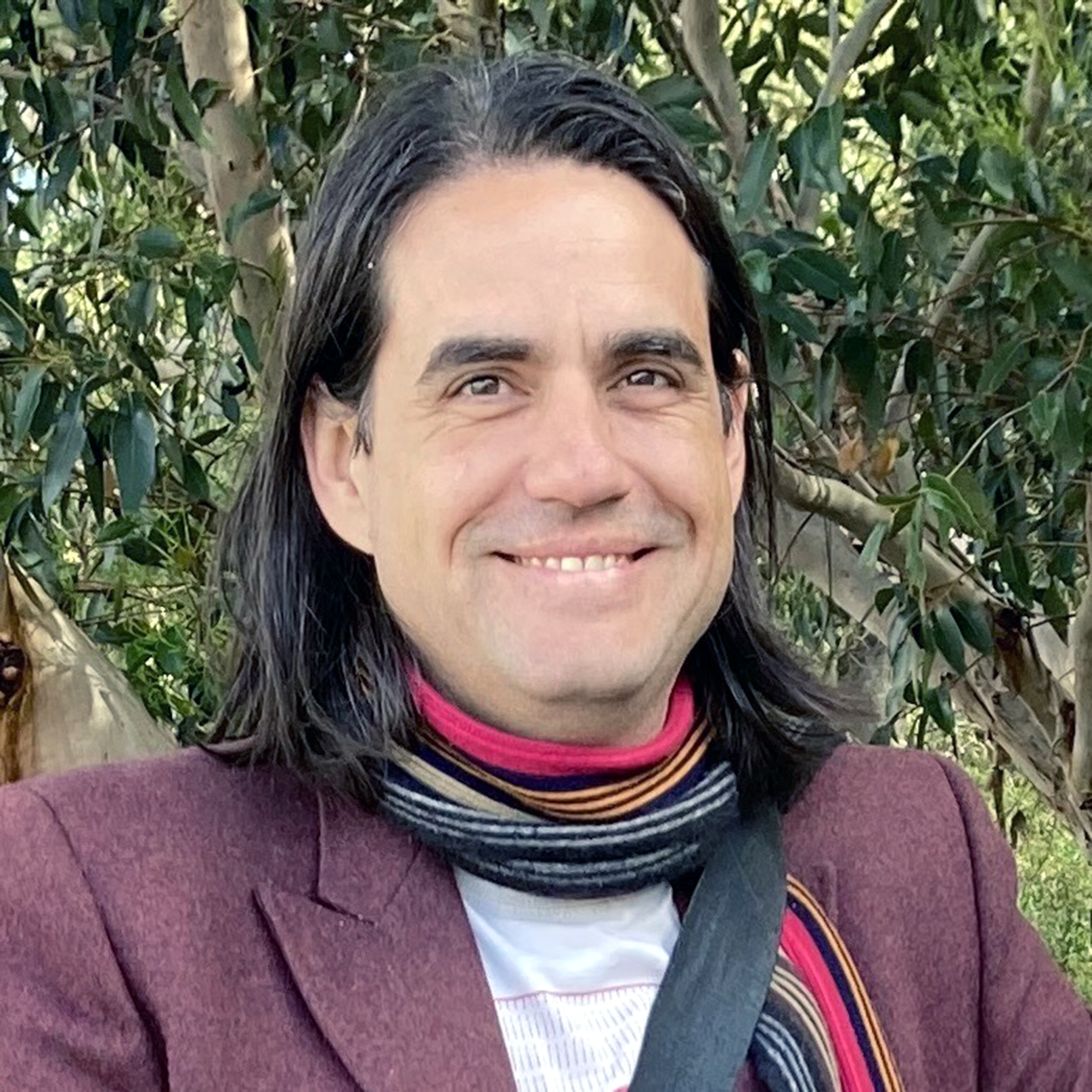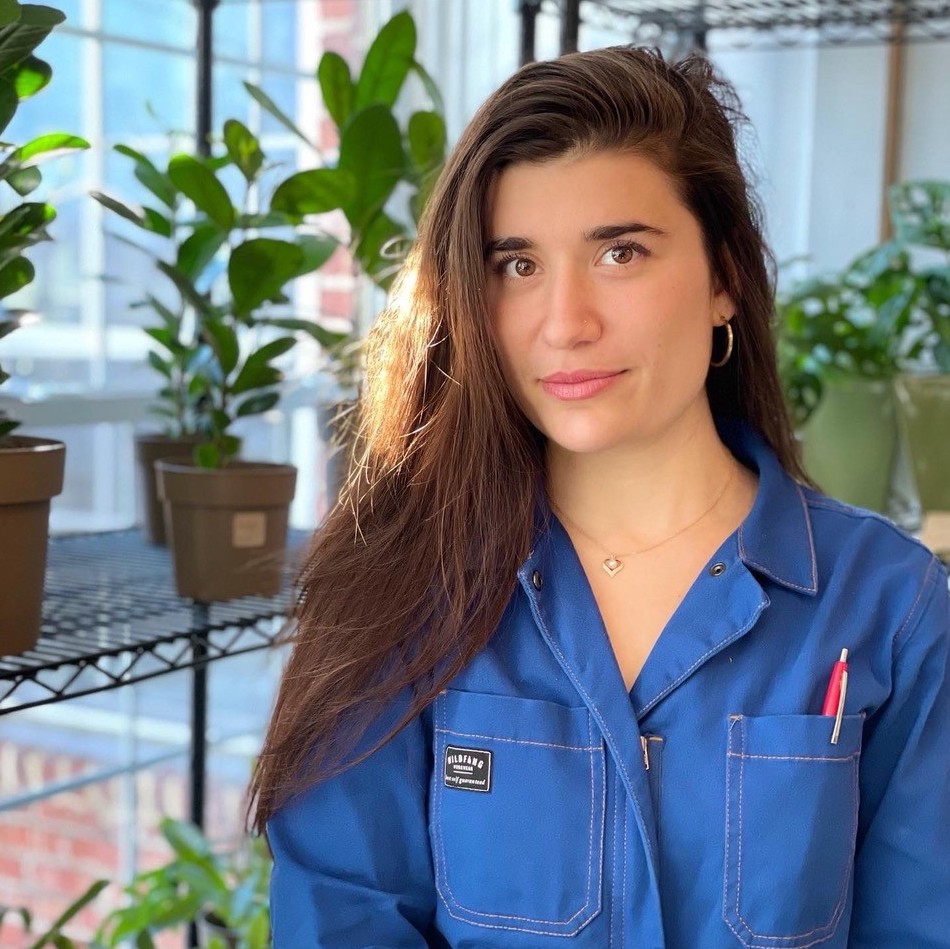Dan Disney was named the overall winner of the 2023 Peter Porter Poetry Prize at an online ceremony on 19 January 2023 for his poem 'periferal, fantasmal'. The Porter Prize - Australia's most prestigious poetry competition - is worth a total of $10,000. This year’s judges – Sarah Holland-Batt, Des Cowley and James Jiang – shortlisted five poems by Chris Andrews (NSW ), Chris Arnold (WA), Michelle Cahill (NSW ), Dan Disney (South Korea/Australia), and Raisa Tolchinsky (USA). The shortlisted poems were selected from 1,132 entries sent from thirty-four countries. They appear in the January–February issue of ABR.
The judges said this of ‘periferal, fantasmal’:
‘A tour de force of linguistic estrangements, “periferal, fantasmal” excavates the colonial history sedimented in the names that litter the landscape of the Gippsland region in Victoria. Through its comic neologisms and deft calibrations of lyric temporality, the poem replays the sanction for mineral extraction provided by exonymic nomination, reminding us of the scotch-soaked nightmare from which we are still trying to awake.’
On learning of his win, Dan Disney commented:
‘Peter Porter opens his poem “Landscape with Orpheus” with an epigraph from The Magic Flute – “You only live once, let that be enough for you!”. Poems like Porter’s generate not only wonder but also awed awareness (and, for me, a shift thereafter towards ethical, experimental rhetoric). I am dazzled to be in the bright reality of a moment like this. It is an incredible honour to receive a prize bearing the name of such a prodigiously enlivening, humanising poet.’
Prefacing their comments on the shortlist (each appraisal appears below the shortlisted poets), the judges said:
The judges were pleased to consider a rich and deep field of entries to the Peter Porter Poetry Prize this year, reflecting both the variety and strength of contemporary poetry, and many of its stylistic and thematic concerns. This year’s entries reflected a pronounced interest in climate issues and contemporary geopolitics, with a number of poems touching on recent floods and bushfires, species extinction, and the war in Ukraine. Many entries veered towards the experimental, and there were fewer lyric poems, love poems, and poems explicitly interested in established forms than in previous years. The outstanding poems on this year’s shortlist share an interest in political concerns refracted through their expression in language, including philology and etymology, and the power of listing, cataloguing, and naming. The five shortlisted poems engage with pressing subjects such as mining, colonial place naming, abortion, environmental degradation, and the relationship between the human and non-human worlds, but do so with subtlety, wit, and linguistic charge, rather than didacticism. Curiously, a taxonomic impulse manifests in several of the shortlisted poems, which probe the inflections, origins, and currency of words.
Reading the shortlisted poems
The shortlisted poems appear in our January–February 2023 issue and subscribers can read them here. The print edition is also available to purchase, simply click here and follow the prompts.
The five shortlisted poems are (in alphabetical order):
‘Loss-invaded Catalogue’ by Chris Andrews (Australia)
 Chris Andrews has taught at the Universities of Melbourne and Western Sydney. He is the author of two collections of poems: Cut Lunch (Indigo, 2002) and Lime Green Chair (Waywiser, 2012). His study of the Oulipo, How to Do Things with Forms, was published by McGill-Queen’s University Press in 2022. Currently he is translating You Glow in the Dark by the Bolivian writer Liliana Colanzi.
Chris Andrews has taught at the Universities of Melbourne and Western Sydney. He is the author of two collections of poems: Cut Lunch (Indigo, 2002) and Lime Green Chair (Waywiser, 2012). His study of the Oulipo, How to Do Things with Forms, was published by McGill-Queen’s University Press in 2022. Currently he is translating You Glow in the Dark by the Bolivian writer Liliana Colanzi.
Judges: ‘Loss-Invaded Catalogue’ marshals the satirical potential of the tetrameter line into a deadpan critique of the intractability of the new systems – romantic, informational, or industrial – to which we are all made to subscribe. Lifting away the bureaucratic pallor that has become the most visible alibi for violence in our contemporary world, the poem deploys lyrical perception against the mortmain of cliché and institutionalised groupthink.
‘Running Up That Bill’ by Chris Arnold (Australia)

Judges: Rife with argot and acerbic wit, “Running Up that Bill” mashes up open-cut mining, news headlines, and pop culture to create a patchwork view of an Australia that venerates the wrong gods. Toggling between Kate Bush, Cold Chisel, the excesses of Surfers Paradise, and the destruction of the Juukan Gorge, the poet garners breakneck momentum over a virtuosic single sentence, offering a dark vision of a nation in thrall to our faded wrecks of ‘culture’ –half-hallucinated, half-real – where ‘the dog track’s still going and the emu’s / on tap’.
‘Field Notes for an Albatross Palimpsest’ by Michelle Cahill (Australia)
 Michelle Cahill (she/they) is an Australian novelist and poet of Indian heritage who lives in Sydney. Daisy & Woolf is published by Hachette. Letter to Pessoa (Giramondo) was awarded the NSW Premier's Literary Award for New Writing. Their prizes include the Red Room Poetry Fellowship, the Val Vallis Award, the KWS Hilary Mantel International Short Story Prize, and a shortlisting in the ABR Elizabeth Jolley Prize. Their work appears in The Best of Australian Poems, HEAT, Plumwood Mountain, Kalliope X and The Kenyon Review.
Michelle Cahill (she/they) is an Australian novelist and poet of Indian heritage who lives in Sydney. Daisy & Woolf is published by Hachette. Letter to Pessoa (Giramondo) was awarded the NSW Premier's Literary Award for New Writing. Their prizes include the Red Room Poetry Fellowship, the Val Vallis Award, the KWS Hilary Mantel International Short Story Prize, and a shortlisting in the ABR Elizabeth Jolley Prize. Their work appears in The Best of Australian Poems, HEAT, Plumwood Mountain, Kalliope X and The Kenyon Review.
Judges: Tapping into a rich tradition of seafaring idiom, ‘Field Notes for an Albatross Palimpsest’ presents a collage of voices crossing centuries: mariners and poets, journalists and technocrats. Summoning Coleridge’s metaphorical bird, and sure-footed in its naming, the poem plots a line between slavery, damaged food chains, over-harvesting of marine resources, clogged and polluted beaches, ‘creaking landfill’. Woven from the language of shipboard journals, Māori place names, maps, newspaper reports, these patchwork notes posit extinction as an endgame, consumed at ‘high speed’.
‘periferal, fantasmal’ by Dan Disney (South Korea/Australia) (winner)
Dan Disney’s most recent collection of poems, accelerations & inertias, (Vagabond Press 2021), was shortlisted for the Judith Wright Calanthe Award and received the Kenneth Slessor Prize. Together with Matthew Hall, he is the editor of New Directions in Contemporary Australian Poetry (Palgrave 2021). He teaches with the English Department at Sogang University, in Seoul.
Judges: A tour de force of linguistic estrangements, ‘periferal, fantasmal’ excavates the colonial history sedimented in the names that litter the landscape of the Gippsland region in Victoria. Through its comic neologisms and deft calibrations of lyric temporality, the poem replays the sanction for mineral extraction provided by exonymic nomination, reminding us of the scotch-soaked nightmare from which we are still trying to awake.
‘Abiquiu, New Mexico’ by Raisa Tolchinsky (United States)
 Raisa Tolchinsky writes about love, grief, and the wisdom of the body. She is the recipient of the Henfield Prize for Fiction and two Pushcart Prize nominees in poetry. Raisa earned her MFA in poetry from the University of Virginia and her BA from Bowdoin College. She is trained as an amateur boxer. Her chapbook Number One Deadliest, an eco-poetic meditation on boxing and climate grief, was published with the Under Review in 2021. She was shortlisted in the 2021 Peter Porter Poetry Prize. Currently, Raisa is the George Bennett Writer-in-Residence at Phillips Exeter Academy in New Hampshire.
Raisa Tolchinsky writes about love, grief, and the wisdom of the body. She is the recipient of the Henfield Prize for Fiction and two Pushcart Prize nominees in poetry. Raisa earned her MFA in poetry from the University of Virginia and her BA from Bowdoin College. She is trained as an amateur boxer. Her chapbook Number One Deadliest, an eco-poetic meditation on boxing and climate grief, was published with the Under Review in 2021. She was shortlisted in the 2021 Peter Porter Poetry Prize. Currently, Raisa is the George Bennett Writer-in-Residence at Phillips Exeter Academy in New Hampshire.
Judges: ‘Abiquiu, New Mexico’, compelling in its brevity, strikes the reader like a blow to the solar plexus. Shifting gears between clinical terminology and wide-open desert landscapes, it careens between rage and beauty, loss and renewal. Rendered in the irreducible language of the heart, free of cliché and sentimentality, the poem’s unembellished phrasing – ‘mother tongue emptied into ordinary language’ – confronts the limits of speech, asking how it is possible to express ‘impossible grief’.
Congratulations to the full longlist:
Chris Andrews (NSW), ‘Loss-Invaded Catalogue’ – Shortlisted
Steve Armstrong (NSW), ‘When night is the mother of wisdom’ – Longlisted
Chris Arnold (WA), ‘Running Up That Bill’– Shortlisted
Luke Beesley (VIC), ‘Tilde and author’ – Longlisted
Michelle Cahill (NSW), ‘Field Notes for an Albatross Palimpsest’ – Shortlisted
Eva Da (US), ‘Foreign Skies’ – Longlisted
Dan Disney (Korea), ‘periferal, fantasmal’ – Shortlisted
Dave Drayton (NSW), ‘The gold is gone’ – Longlisted
Katie Hale (England), ‘Titania’ – Longlisted
Dimitra Harvey (NSW), ‘Feral’ – Longlisted
Rhian Healy (VIC), ‘Full Throttle’ – Longlisted
Julie Janson (NSW), ‘Kurraarr Far Country’ – Longlisted
Rosa Lane (US), ‘Foxglove [disambiguation]’ – Longlisted
Penelope Layland (VIC), ‘The paddy melon wars’ – Longlisted
James Lucas (NSW), ‘Trip advisor’ – Longlisted
Kirsten McAteer (US), ‘Cows’ – Longlisted
Isabella Mead (VIC), ‘Bonnethead’ – Longlisted
Damen O’Brien (QLD), ‘The pelican feeder’ – Longlisted
Mark O’Flynn (NSW), ‘For Sale, The Most Beautiful Object in the World’ – Longlisted
Karen Petersen (US), ‘My Long Island’ – Longlisted
Peter Ramm (NSW), ‘On Seeing the Statue of Darius from Susa’ – Longlisted
Amritha Selvarajaguru (US), ‘milkteeth & the love of the shark’ – Longlisted
Meredith Stricker (US), ‘Autopoiesis’ – Longlisted
Raisa Tolchinsky (US), ‘Abiquiu, New Mexico’ – Shortlisted
Gabriela Valencia (US), ‘Death, Whistle’ – Longlisted
To stay updated on the Porter Prize and Australian Book Review’s other prizes, please sign up for our ‘Prizes and Programs’ newsletter.
We gratefully acknowledge the long-standing support of Morag Fraser AM and Andrew Taylor AM and support in memory of Kate Boyce.

